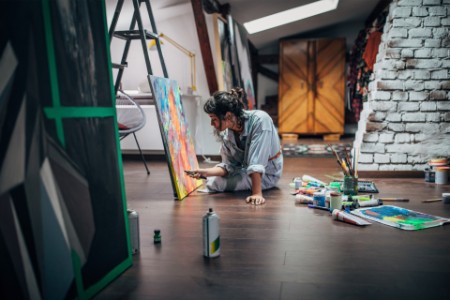A company domiciled in the British Channel Islands (Ltd.) maintains an extensive collection of contemporary art and sees its business purpose in holding, trading and renting out these works of art. The Ltd. has neither a registered office nor a permanent establishment in Switzerland. In the period from 2002 to 2015, the Ltd. regularly provided works of art to its beneficial owner domiciled in Switzerland who frequently used them to re-furnish his private properties. The works of art were imported into Switzerland from abroad. As early as 2002, the Ltd. applied for a declaration of subordination with the Swiss Federal Tax Administration (SFTA), has since acted as importer of record for the import of art objects, has Swiss VAT registered and has accounted for Swiss VAT on the rental turnover. Since the import value of the works of art exceeded the rental fee, the Ltd. regularly declared an excess of input VAT.
The SFTA and the Federal Administrative Court questioned the VAT liability of the Ltd. in Switzerland for the tax periods 2009 to 2015, which led to additional VAT assessments of approximately CHF 7.5 million. The Federal Supreme Court had to clarify whether the Ltd. operated a business during this period, rendered supplies in Switzerland, was therefore liable to VAT and entitled to deduct input VAT – namely import VAT on the importation of art objects – or whether it should be denied its VAT liability and the right to deduct input VAT due to tax avoidance.
Assessment of the Federal Supreme Court
The Federal Supreme Court recognizes the rental of art by the Ltd. to its beneficial owner as an entrepreneurial activity.
Turnover from the rental of goods that are brought to Switzerland from abroad, however, is VAT-wise deemed to be generated abroad and is therefore not subject to Swiss VAT. Companies with their registered office abroad are not entitled to be entered in the Swiss VAT register without generating supplies in Switzerland (under both the old and the new VAT law). With a so-called declaration of subordination abroad, the lessor may generally shift the place of the rental supply from abroad to Switzerland. In this case, the lessor becomes Swiss VAT liable.
In the present case, however, in the opinion of the Federal Supreme Court, the arrangement chosen by the Ltd. bears all the characteristics of tax avoidance: the legal arrangement chosen is unusual, was made solely to save taxes and has actually led to a significant tax saving. The accusation of tax avoidance is specifically directed against the shifting of the place of supply by means of a declaration of subordination.
The Federal Supreme Court considers it obvious that the VAT liability of the Ltd. voluntarily established via the declaration of subordination served solely to recover import VAT from the importation of art objects, which would otherwise have finally burdened the beneficial owner. No economic motives were apparent for the Ltd. applying for a declaration of subordination. The Ltd. could not invoke the protection of legitimate expectations.
Only additional VAT assessments relating to the tax period 2010 were rejected by the Federal Supreme Court due to the statute of limitations. The other tax periods, including 2009, were not time-barred.


